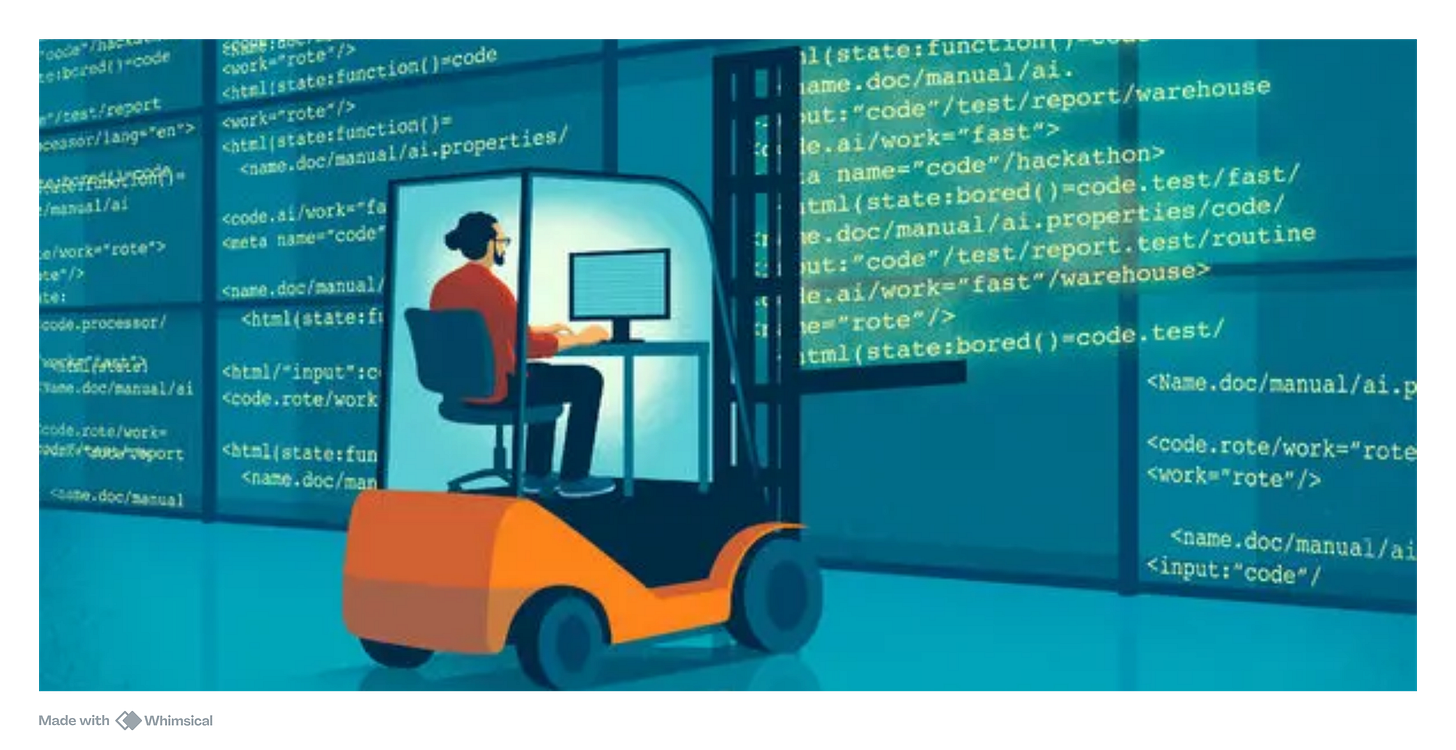✨ Ive’s OpenAI Move, China’s Web Crackdown, Amazon AI Grind
Good morning. It’s Monday, May 26. Today we are covering:
Jony Ive's OpenAI Deal Puts Pressure on Apple to Find Next Big Thing
'Alarming' rise in regional internet censorship in China, study finds
At Amazon, Some Coders Say Their Jobs Have Begun to Resemble Warehouse Work
Sam and Jony and skepticism
Google expands access to Veo 3, its viral new video model, through the Gemini app
Let’s dive in
Jony Ive's OpenAI Deal Puts Pressure on Apple to Find Next Big Thing
By Mark Gurman via Bloomberg
Jony Ive’s $6.5 billion deal with OpenAI underscores Apple’s internal struggles with innovation and AI leadership, following a prolonged design-team exodus.
Apple is accelerating plans for Meta-like smart glasses slated for late 2026 and shelving a smartwatch with a camera as it repositions its hardware roadmap around AI-driven experiences.
Ahead of WWDC, Apple is preparing to unveil major iOS, iPadOS, and macOS redesigns, alongside what could be its most significant AI announcement to date.
𝕏: Also in Power On: Apple’s upcoming iOS, iPadOS and macOS interface overhaul will extend to tvOS, watchOS and visionOS. - Mark Gurman (@markgurman)
'Alarming' rise in regional internet censorship in China, study finds
By Amy Hawkins via The Guardian
A new study reveals that Henan province faces significantly stricter internet controls than the rest of China, with users there blocked from five times more websites than the national average between November 2023 and March 2025.
Researchers from UMass Amherst and Stanford documented a regional censorship system in Henan that at times blocked up to 4.2 million domains, mainly business-related, possibly linked to past finance protests in the region.
The Chinese government’s evolving use of AI-driven surveillance tools, including systems that track VPN and Telegram users, highlights a growing tech arms race between censors and those attempting to evade control.
𝕏: China has the world’s most sophisticated and extensive internet censorship regime, and it is becoming more aggressive. - Michael Ron Bowling (@mrbcyber)
The best way to reach new readers is through word of mouth. If you click THIS LINK in your inbox, it’ll create an easy-to-send pre-written email you can just fire off to some friends.
At Amazon, Some Coders Say Their Jobs Have Begun to Resemble Warehouse Work
By Noam Scheiber via The New York Times
As AI tools like GitHub Copilot reshape software development, coders at Amazon report their work is becoming more repetitive, deadline-driven, and closely monitored—mirroring the routinization seen in warehouse jobs during earlier tech revolutions.
Internal pressure to adopt generative AI is rising, with engineers facing higher output expectations and fewer team resources, prompting concerns about degraded job quality, hindered skill development, and reduced autonomy.
While Amazon and other tech firms argue that AI enhances productivity and relieves tedium, many developers feel like "bystanders in their own jobs," raising long-term fears about career progression and job satisfaction amid the AI-driven “speed up.”
𝕏: "The automation of coding has special resonance for Amazon engineers, who have watched their blue-collar counterparts undergo a similar transition." - Scott Lincicome (@scottlincicome)
By Jason Snell via Six Colors
OpenAI’s partnership with Jony Ive to create AI-enabled hardware is met with deep skepticism, as the author questions whether the project is more hype than substance and predicts it may resemble prior failed products like the Humane AI Pin or AI Pendant.
The critique extends to Sam Altman’s leadership, branding him as overly optimistic and possibly blinded by hype, and questions the io team’s imbalance—heavy on designers but seemingly light on engineering execution.
Jony Ive’s post-Jobs legacy is portrayed as untethered and indulgent, with the author doubting whether a billionaire design dream team can genuinely reconnect with mass-market needs, or simply create another luxury niche product divorced from practical innovation.
Google expands access to Veo 3, its viral new video model, through the Gemini app
By Matthias Bastian via THE DECODER
Google’s Veo 3 AI video model is now available in 71 new countries, excluding the EU, with access announced by Gemini VP Josh Woodward via X.
Gemini Pro users receive a one-time trial of 10 generations, while Ultra subscribers ($250/month) unlock full access, including 125 monthly generations in Flow mode designed for AI filmmakers.
Despite its impressive prompt accuracy and viral demo videos, Veo 3 raises deepfake and disinformation concerns, as it enables hyper-realistic video/audio creation from simple text prompts.
We're thrilled to bring you ad-free news. To keep it that way, we need your support. Your pledge helps us stay independent and deliver high-quality insights while exploring new ideas. What would you love to see next? Share your thoughts and help shape the future of Newslit Daily. Thank you for being part of this journey!
Trending in AI
AI Is Helping Executives Tackle the Dreaded Post-Vacation Inbox
Khosla Ventures among VCs experimenting with AI-infused roll-ups of mature companies
Thanks for reading to the bottom and soaking in our Newslit Daily fueled with highlights for your morning.
I hope you found it interesting and, needless to say, if you have any questions or feedback let me know by hitting reply.
Take care and see you tomorrow!
How was today’s email?







